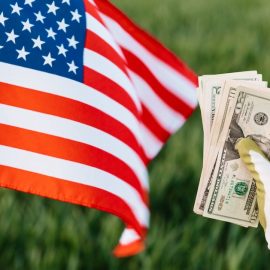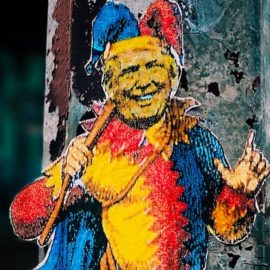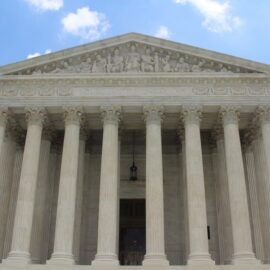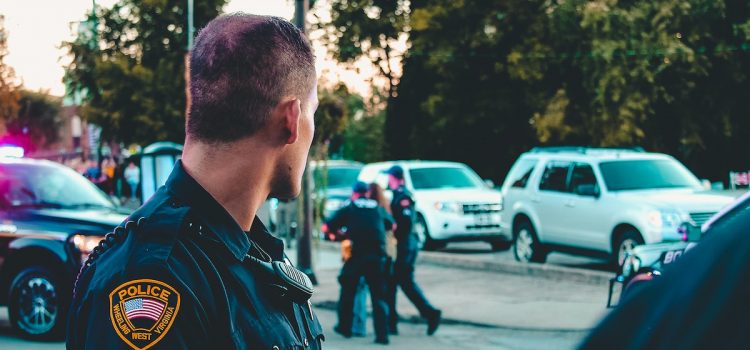
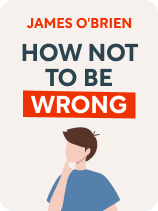
This article is an excerpt from the Shortform book guide to "How Not To Be Wrong" by James O'Brien. Shortform has the world's best summaries and analyses of books you should be reading.
Like this article? Sign up for a free trial here.
Is the stop-and-frisk policy racist? How thoroughly have you thought about it?
James O’Brien believes that, as a white man, he was relatively uninformed about race and racism for much of his life. The more he learned, the more his eyes were opened, and he came to regard his beliefs about things such as stop-and-frisk as wrong.
Keep reading to learn about O’Brien’s journey of prejudice and awareness.
Stop-and-Frisk Policy
O’Brien claims that he wasn’t exposed to racism growing up, because (according to him) his friends who were people of color didn’t experience it in school. Since he didn’t observe racism around him in his boarding school or college, he didn’t think it was a problem.
As an adult, he didn’t view the law enforcement practice of indiscriminate stop and search (stop-and-frisk in America) as an example of racial profiling, even though it was directed primarily at Black men. Rather, he believed that, if you had nothing to hide, you had nothing to fear.
The turning point: When O’Brien first asked listeners of his show to phone in about the stop-and-frisk policy, he got lots of calls from old, white men. But, then, he asked for calls specifically from people who had personally experienced stop-and-frisk. He was surprised by how the callers (Black men) felt uniformly victimized by the words and behavior of the police during the stop-and-frisk. But O’Brien still clung to his position that stop-and-frisk was necessary; he just amended it to add “as long as the police are polite and respectful.”
The more he listened to people with negative experiences of stop-and-frisk, the harder it became to hold on to his opinions. O’Brien says that, if he had been in another job where he wasn’t exposed to those opinions, he might never have changed his mind.
He realized that he had accepted the type of indiscriminate, unfounded punishment used in stop-and-frisk because thinking otherwise would force him to acknowledge the pain he felt when experiencing similar punishment as a child (albeit under different circumstances). In essence, his views on the stop-and-frisk policy had been another version of his belief that pain makes you stronger, and that the best way to approach unfair punishment is to grit your teeth and accept it. Coming to terms with his own childhood pain helped O’Brien empathize with and change his mind about other people.
O’Brien also learned from his callers that a tiny percentage of Black people in London actually commit serious, violent crimes (.005%), but all Black people are blamed for it. So, the vast majority of Black kids who just want to go to school are treated as though they are criminals, which is traumatizing for them, and it means that resources are being allocated to policing instead of helping low-income kids who live in dangerous neighborhoods.
O’Brien’s answer to the question of how to change racist views is to educate yourself, in particular by listening to people who have personally experienced racism.
| Individual vs. Systemic Racism Before he became more informed about racism, O’Brien seemed to think that, because he hadn’t witnessed any overtly racist acts, racism wasn’t a big problem in England. Besides the fact that O’Brien’s friends and classmates (and many others) could have been experiencing racism of which he was simply unaware, O’Brien’s former mindset also made him conflate the apparent absence of individual racism with the absence of systemic racism. Systemic racism is racism that is baked into institutions, such as the government, the legal system, and law enforcement. It consists of policies, procedures, and laws—often put in place during a time when overt racism was societally sanctioned—that work to discriminate against people based on race, even in the absence of any individual racist acts. The practice of racial profiling, or targeting individuals for suspicion of crime based solely on race, is an example of systemic racism. Stop-and-frisk policing often relies on racial profiling. Stop-and-frisk policing, used in both England and the United States, was especially controversial in New York City during Michael Bloomberg’s tenure as mayor from 2002 to 2013. During that time, the vast majority of people detained and searched were young Black and Latino men. For example, in 2009, Black and Latino people in New York were nine times as likely as white people to be stopped by the police. According to police data analyzed by the New York Civil Liberties Union, only 14 out of every 10,000 stops conducted during the Bloomberg era turned up a gun, and 1,200 out of every 10,000 ended with a fine, an arrest, or the seizure of an illegal weapon. Stop-and-frisk came to an end in New York when a federal judge ruled that the searches amounted to a policy of indirect racial profiling of Black and Latino people. After the policy was abandoned, crime in New York City fell to levels not seen since the 1950s. Racial profiling goes beyond unfair practices: It often results in the injury or death of the person detained. In addition, people who experience racial profiling often suffer from PTSD, much as O’Brien himself suffers from the effects of being unfairly targeted for punishment in his childhood. |

———End of Preview———
Like what you just read? Read the rest of the world's best book summary and analysis of James O'Brien's "How Not To Be Wrong" at Shortform.
Here's what you'll find in our full How Not To Be Wrong summary:
- Why learning to change your mind is a valuable skill
- How to combat prejudice and gain empathy for others
- Why you should take a step back and reexamine your beliefs

